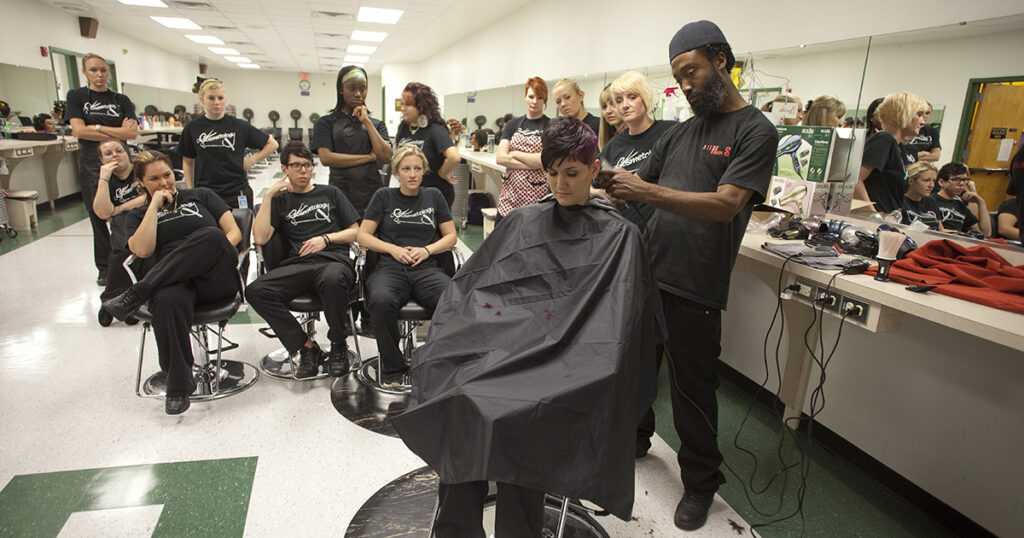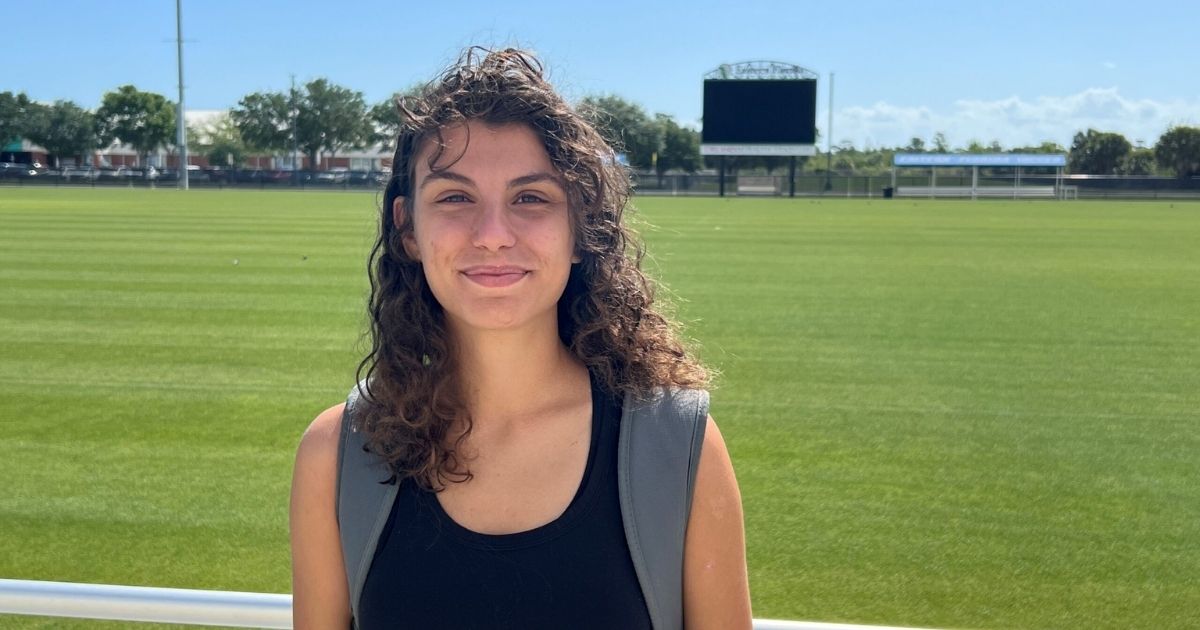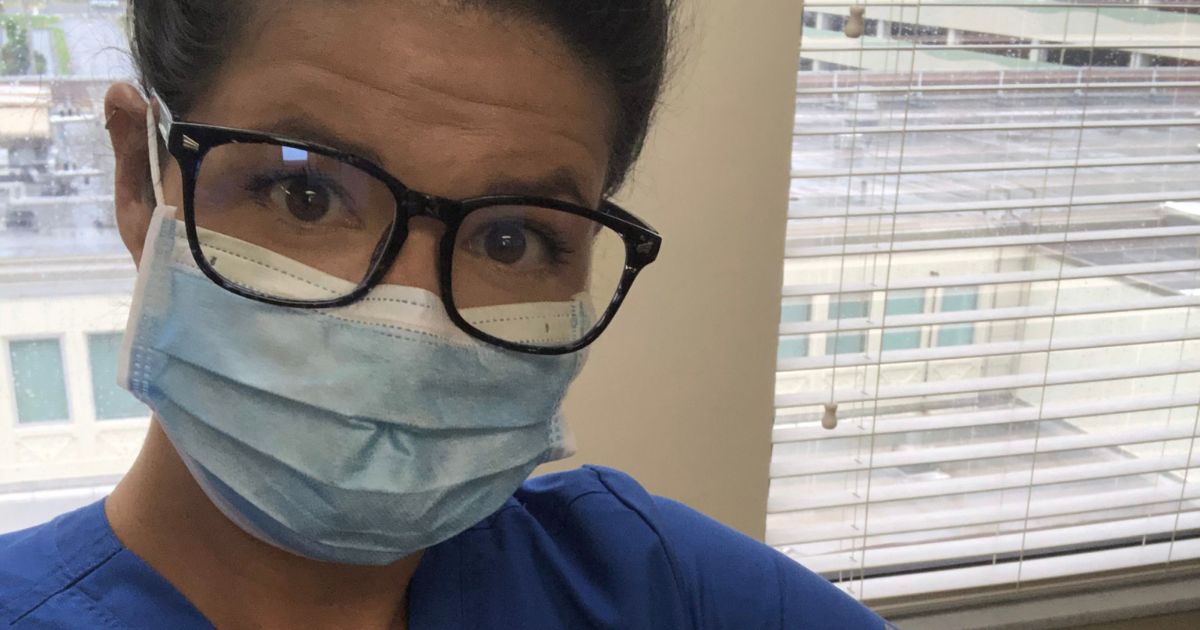Do you love to express yourself through art? Is helping others feel good about themselves rewarding to you? Would others describe you as creative, hands-on, and service-minded? EFSC’s Cosmetology Program could be the perfect fit for you!
Natasha Trythall and Irie Sutton, who are both halfway through the program, provide behind-the-scenes insight into their daily classroom experiences at the EFSC Salon, with advice for future students considering this rewarding and diverse career.
Tell Us a Little Bit About Yourselves and How You Got Into Cosmetology
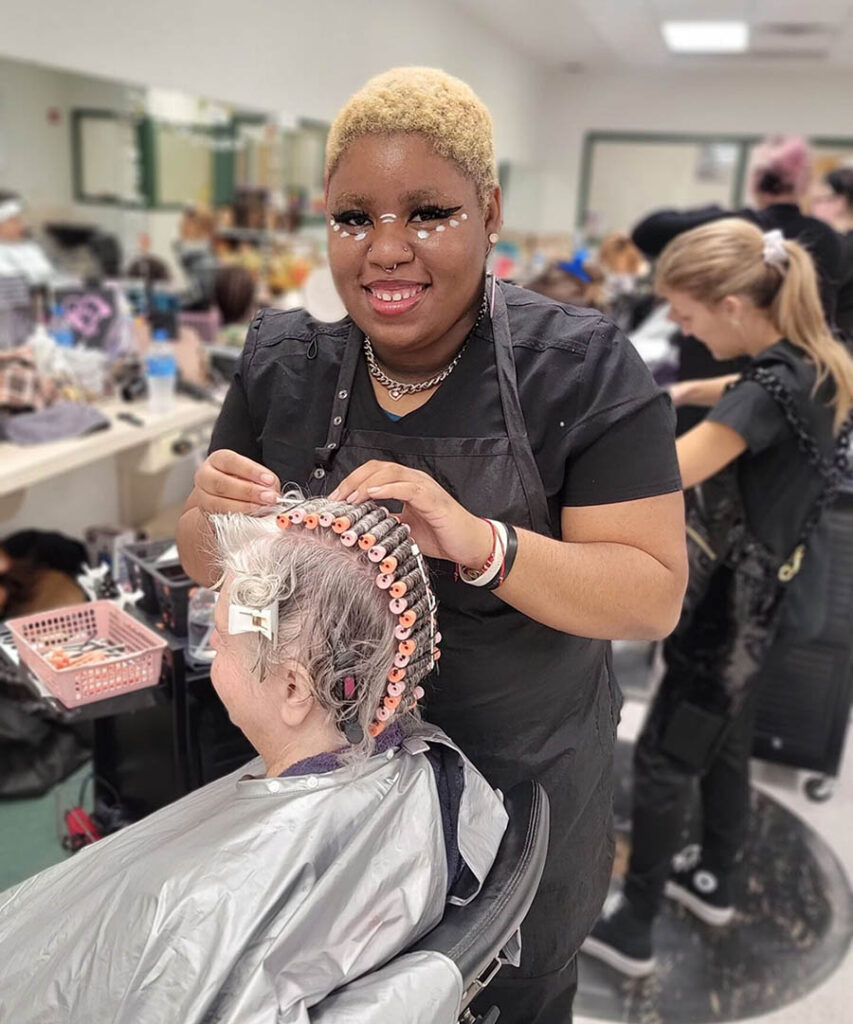
Natasha: I wasn’t the kid who grew up with a mom who did makeup and hair. I stood out because I liked putting on dresses and doing hair and makeup, but I never considered cosmetology a career choice. In 2015, I took a position as an assistant at a salon, and I loved it. It came second-nature to me. I previously had a radiography degree through EFSC. I also have a bachelor’s degree in organizational management with EFSC. For a while, I worked in those fields; but even though I was good at those positions, something was missing. I thought back to the last time that I really enjoyed going to work every day, and it was when I was the assistant at that salon. We’re over halfway through the program. We both graduate June 30th this year.
Irie: I always had a niche for hair. Once I got to the end of high school, I thought to myself, “What could I do to ensure myself a career?” I was going the military route for diesel engineering, but I was told my hair was a problem because they didn’t want us to have blonde hair. I had to give this big presentation about why I should be able to have blonde hair since it was a natural color. So instead of going that route and doing something that I know I wouldn’t have loved but was a lucrative career choice, I decided to do cosmetology. We express ourselves with our hair — big, curly hair… colorful hair… It’s what I’ve grown up around and that’s how I express myself. It’s myself outwards, including my makeup.
What’s the Most Fulfilling Part of Cosmetology?
Irie: For me, it’s reflecting my outward creativity on someone else and having them feel that energy that I instilled, whether it’s a cut or color nails. I want to show others that my creativity can also make them feel good and give them that sense of beauty.
Natasha: I want to help people and cosmetology helps others. I’m a very artistic person as well. This helps in hair coloring. I noticed when I was the assistant at the salon, customers would walk in and they’d be stressed out or upset about the way they looked. But at the end, when I was finished they’d be like a different person — so excited and happy about how they looked. For me, that’s a fulfilling thing to be able to help them feel better about themselves, even if it’s just for a few minutes or a couple of hours that day.
What’s a Typical Day Like in This Program?
Irie: We are in different classes with different instructors. We start off with theory on Mondays, so first, we learn about new topics. Right now, we’re learning nail enhancement — acrylics, nail wraps, different gels, and preserving nails. Then we move on to the practical side of things. So once we know what we’re doing — the terminology and different materials — we start moving into practicing them. We practice new techniques on each other first before we actually do them on clients.
Natasha: Mondays are more classroom-based days. We don’t see any clients. You get to practice on mannequins, as well as each other. You really get comfortable with something before you’re applying it to a person who you don’t know. Tuesday through Thursday, we have class for an hour in the morning. After that, it’s all hands-on and I really enjoy that about this program. You get theory, but also practical application, which is what’s going to make the difference for you.
Could You Tell Me More About the Services the Cosmetology Salon Offers?
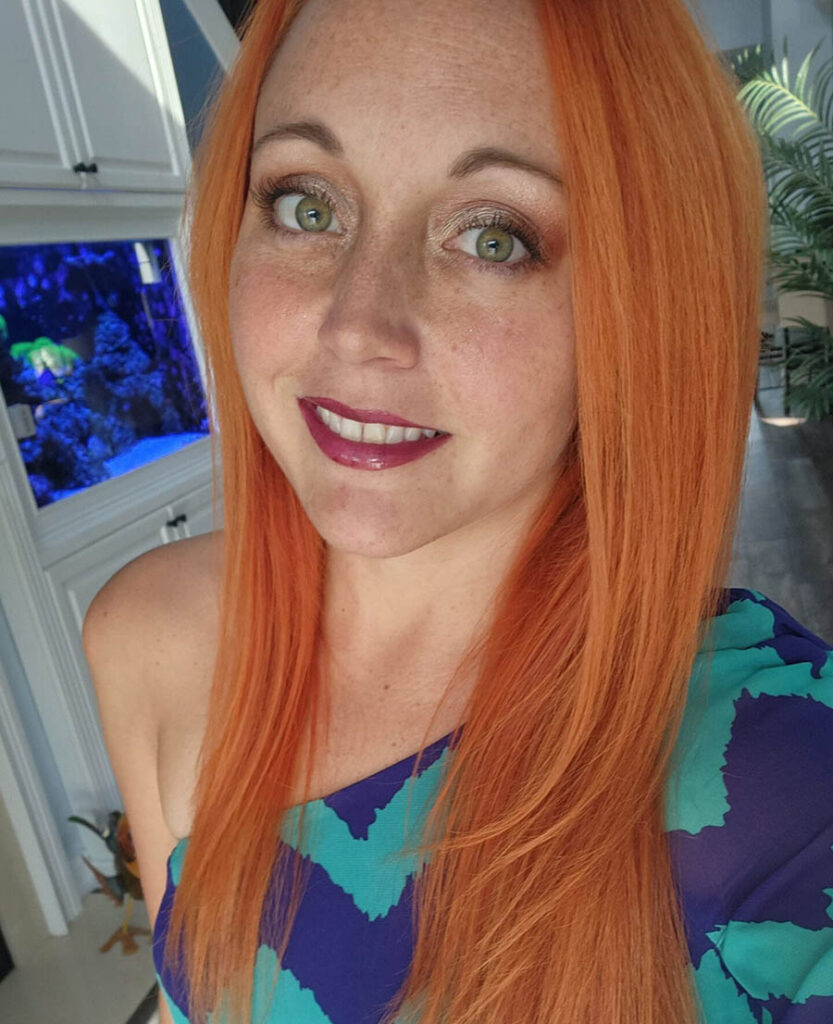
Irie: We offer a lot of cuts — different angles, like the 90-degree. We give men’s cuts a more tapered look. We also do coloring and chemical treatments like relaxers, perms, and soft weaving. Right now we’re learning how to give pedicures and manicures and then nail enhancements, acrylics, and wraps.
Natasha: Most anything that you can do with hair at this point, we’ve been trained on. The next thing is doing facials, which we should be learning in a couple of weeks.
NOTE: The public can support the students’ training by making an EFSC Cosmetology Salon appointment or checking about walk-in services.
And Do You Do Any Community Service as Part of Your Program? Do You Go Out To Events and Do Hair or Anything Like That? I’m Just Curious.
Irie: We did haircuts for people experiencing homelessness and haircuts for veterans. We would go out and give free haircuts to anyone who needed them.
What About Haircuts for Students?
Natasha: Students (EFSC and UCF Cocoa) get a free (dry hair) cut once a month by showing their ID. If they’d like to add a service like shampooing, that’s $5. And then if they want it styled and blown dry, that’s another $5. A haircut, shampoo, and blow dry for a student is $10.
What’s Your Favorite Service or Process That You’ve Learned in This Program, and What Has Been the Most Challenging for You Personally?
Irie: I have two favorites. I absolutely love short cuts — like men’s cuts, because I have short hair. I like the satisfaction of straight lines and the cleanness, and also love color. I’m an artist, so color theory is something that I deal with on a day-to-day basis, whether it’s mixing the colors, matching colors, or wild fantasy colors. My least favorite is probably the pedicure because I’m not really a big fan of feet. But, honestly, there isn’t really anything that I don’t enjoy. I enjoy the overall aspect of cosmetology and making someone feel beautiful.
Natasha: Color or lightning services are my favorite thing — any aspect of color or lightning, designs, or painting. I do like doing pedicures because I like giving people massages to make them feel good. My biggest challenge is probably the acrylic nails that we’re learning now. There’s a lot more technical skill and motor skills involved rather than critical thinking. I just don’t have the patience for it because I need something a little bit more stimulating.
Before You Entered This Program, What Experiences Were Really Beneficial To You with What You’re Learning in Cosmetology?
Irie: Having an open mind, really. You have a whole different array of people who you see every day, all with different types of mindsets. You must have a sense of self-worth, not let yourself get discouraged, and just be yourself overall.
Natasha: My medical background helped. Knowing medical or technical terms really helped me with sanitation — learning about bacteria. It came very naturally to me because of that background. My four-year degree in organizational management has also helped with the business aspects of cosmetology — human resources, project management, accounting, and so on.
If You Could Go Back and Give Your Past Self a Piece of Advice Before You Started This Program, What Advice Would You Give?
Irie: Don’t be too hard on yourself. When I was in high school, I was the kid who had everything going for them. I had scholarships. I had different avenues that I could go — military, law enforcement… But these weren’t letting my creativity shine. I would just say be yourself. Go and do what you love and do it to your fullest capacity.
Natasha: In this program, if you’re a perfectionist (like I tend to be) and you don’t do a perfect job the first time that you do something, you tend to be very discouraged; and that can block you from progressing. You have to realize that this is a process. You have to do things repeatedly and get better and better as you go. I had such a hard time at first because I’m used to catching on so quickly to things. Just set that mindset ahead of time and say, “You know what, you’re not going to be perfect at everything. You’re not going to be great at everything right off the bat, but you will make it. You will get there. It just takes some time.”
How Much Chemistry and Math Are You Actually Using in This Program?
Irie: There are ratios involved with color, but it’s mostly about timing. With a lot of our chemical services, we have to be careful about the timeline because if we’re lightening someone and we do it too short, we don’t get the level that we want to achieve, or if we do it too long, we can give someone a chemical haircut. If you rush a haircut and you spend 5 minutes on it, you’re guaranteed to have layers on one side and choppiness on the other side. If you really take your time and use time management, feel like you could ace any service and cosmetology.
Natasha: Knowing basic root words like Latin prefixes and suffixes can help you understand the terms better and remember them more fully. But if you have a high school diploma or came right out of high school, you can do this. It’s just going to be a little bit more challenging for you just because a little life experience makes a difference.
Irie: I actually came straight out of high school. It’s all up to how you did in high school to be honest, because I took anatomy in my senior year, so I knew the different nail disorders and nail diseases, the different names for our hair conditions, and all that. I would say it depends on the person.
Do You Have a Specific Goal for When You Finish Your Degree Program?
Irie: The more theatrical side of things. I love everything big. I love everything dramatic. In my future, I want to work on editorial movie sets or what you see in magazines. My overall goal is just being known. I want someone to see my work and know “That’s done by Irie.” I just want to be me and have my creativity seen on different platforms.
Natasha: I’d like to work as a Commission stylist to begin with — building clientele and learning a lot more. Eventually, I’d like to open a place that incorporates nails, hair, and maybe makeup services. This multi-purpose space can be used to do monthly meet-ups, where the community can come together and mingle and everybody can network with their businesses. I’d like to support locally, have maybe a little boutique or where you can buy local face creams or soaps. I’d like to have a fitness person come in and do a yoga class or a fitness class once a month. I like to bring people together. So I think that would be a really unique concept where it’s a salon by day but a multi-purpose communal space in the evenings.
What Kind of Opportunities Are There in Cosmetology? Have You Been Offered Work During Your Time in the Program?
Irie: We have a lot of people come into our work area and to give us demos. One or two have offered us additional opportunities like shadowing. I personally I just pick up a phone and call every salon I can and say, “Hey, do you have an assistant job, or can I shadow?” I’ve shadowed out a couple salons since I’ve been in school. I actually got a job yesterday at a Sports Clips because they have the short cuts and the men’s cuts that I’m interested in. You’ve got to have that drive to get up and say, “OK, let’s go see what I can do to ensure that I have a future in this industry” because it’s not handed to you.
Natasha: I’m always posting on Facebook and in different groups. I had a couple of salons reach out to me after seeing pictures of my work. You have to put in the work. Some stylists don’t have a full understanding of color theory. If you can be that person who really understands what you’re doing and really cares about it, you’ll outshine all of those other people who don’t have that.
Is the Classroom a Salon-Like Environment?
Irie: Very much so, yes.
Natasha: There are quite a few chairs.
What Would You Like To Share with Students Who Are on the Fence About This Program, Wondering If It’s Right for Them?
Irie: Come in with an open mind. You’re going to experience a lot of personalities and a lot of different mindsets. Just stay true to yourself. Don’t let the outside world affect who you are as a person. This industry is creativity — a way for people to represent themselves and what they stand for. Come in, represent what you stand for, and be the best at it.
Natasha: If you’re on the fence about cosmetology, go to a local salon. Ask if you can just observe and become familiar with the environment before you make a commitment. It’s a lot of work and it’s a lot of self-discipline. We’re in class four days a week for 6-7 hours a day. But if you are passionate about cosmetology — if you’re artistic and have that motivation — you can be successful. It’s all up to you.
Wondering If a Career in Cosmetology Is Right for You?
Begin by visiting the cosmetology program page to learn more about its selection criteria and application process. The program starts each Fall Term with a July 15th application deadline. You can also speak with a Career Center Coordinator to determine whether this is the right career path for you, to discover similar careers, and to take the next step in your professional development. We look forward to working with you!

